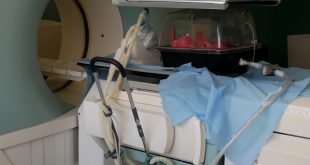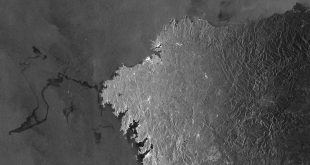A researcher in Health Engineering at Mines Saint-Étienne, Jérémie Pourchez, and his colleagues at the Saint-Étienne University Hospital, have developed an ex vivo model of lungs to help improve medical aerosol therapy devices. An advantage of this technology is that scientists can study inhalation therapy whilst limiting the amount of animal testing that they use. This article is part …
Read More »Search Results for: Data
An “electronic nose” analyzes people’s breath to help sniff out diseases
In partnership with IMT Atlantique, a team of researchers at IMT Lille Douai have developed a device which can measure the level of ammonia in someone’s breath. The aim of the artificial nose is to use this device to create a personalized follow-up care for patients affected by chronic kidney disease. Eventually, the machine could even allow doctors to detect …
Read More »Do mobile apps for kids respect privacy rights?
The number of mobile applications for children is rapidly increasing. An entire market segment is taking shape to reach this target audience. Just like adults, the personal data issue applies to these younger audiences. Grazia Cecere, a researcher in the economics of privacy at Institut Mines-Télécom Business School, has studied the risk of infringing on children’s privacy rights. In this …
Read More »Robots on their best behavior in the factory of the future
A shorter version of this article was published in the monthly magazine Acteurs du franco-allemand, as part of an editorial partnership. Robots must learn to communicate better if they want to earn their spot in the factory of the future. This will be a necessary step in ensuring the autonomy and flexibility of production systems. This issue is the focus …
Read More »Optics as a key to understanding rogue waves
Rogue waves are powerful waves that erupt suddenly. They are rare, but destructive. Above all, they are unpredictable. Surprisingly, researchers have been able to better understand these fascinating waves by studying similar phenomena in fiber optic lasers. Before scientists began measuring and observing them, rogue waves had long been perceived as legends. They can reach a height of 30 …
Read More »Fine against Facebook: How the American FTC transformed itself into “super CNIL”
Article written in partnership with The Conversation Winston Maxwell, Télécom Paris – Institut Mines-Télécom The US consumer protection regulator has issued a record $5 billion fine to Facebook for personal data violations. This fine is by far the largest ever issued for a personal data violation. Despite some members of the US Congress saying that this is not enough, the …
Read More »Marine oil pollution detected from space
Whether it is due to oil spills or cleaning out of tanks at sea, radar satellites can detect any oil slick on the ocean’s surface. Over 15 years ago, René Garello and his team from IMT Atlantique worked on the first proof of concept for this idea to monitor oil pollution from space. Today, they are continuing to work on …
Read More »Good in Tech: a chair to put responsibility and ethics into innovation
On September 12, the Good in Tech chair was launched with the aim of making digital innovations more responsible and ethical. The chair is supported by the Institut Mines-Télécom Business School, the School of Management and Innovation at Sciences Po, and the Fondation du Risque, in partnership with Télécom Paris and Télécom SudParis. This means that the Good in Tech …
Read More »Polybioskin, natural skin through more ethical products
Skin contact products, whether for medical, sanitary or cosmetic purposes, have two major drawbacks: they are neither recyclable nor biodegradable. The Polybioskin H2020 project aims to correct these aspects which are out of step with consumers’ growing environmental awareness and concerns. Launched two years ago, the Polybioskin project brings together 12 European partners, including IMT Mines Alès, and will come …
Read More »SERTIT: satellite imagery for the environment and crisis management
I’MTech is dedicating a series of stories to success stories from research partnerships supported by the Carnot Télécom & Société Numérique Institute (TSN), to which Télécom Physique Strasbourg and IMT belong. The regional image processing and remote sensing service (SERTIT) has specialized in producing geographic information production for over 30 years. It is linked with the ICube[1] laboratory, a key …
Read More » I'MTech L'actualité scientifique et technologique de l'IMT
I'MTech L'actualité scientifique et technologique de l'IMT









